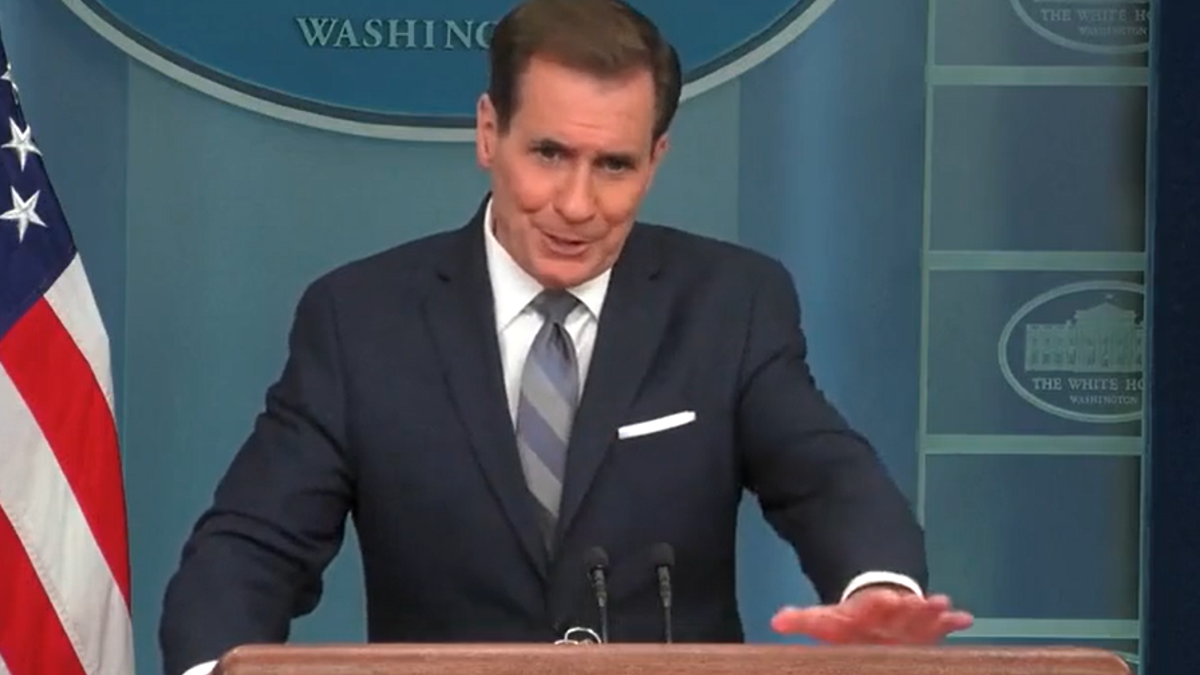Explosive WaPo report unveils new details behind alleged intel leaker
National security correspondent Jennifer Griffin reports the latest on the leak from the Pentagon.
How did highly classified reports concerning the war against Ukraine make their way onto the internet? The short answer is: Washington doesn’t seem to know. And that should scare the hell out of every American and all our allies.
This is an intelligence debacle of the first order.
According to the Pentagon, thousands of people with security clearances had access to the reports before they were leaked. The two most likely scenarios: one of them either posted the reports to obscure corners of the internet (with the assumption that they would eventually become public knowledge) or passed them on to someone without clearance.
RUSSIAN OFFICIAL SUGGESTS LEAKED US DOCUMENTS MAY BE ATTEMPT TO 'MISLEAD THE ENEMY'
Either way, it’s a mess, one made messier by the fact that the documents apparently floated around the internet for weeks before the U.S. government even noticed.

White House National Security spokesman John Kirby warned against sharing documents that have reportedly been leaked.
Why would someone leak these documents? At this point, it is still all just a guessing game.
As Fox News Digital reported "the arrest of a 21-year-old Air National Guardsman in connection to classified documents that have been leaked online in recent months has been met with outrage as critics wonder how a young man could have such high-level access to national security information.
FBI agents arrested Massachusetts Air National Guardsman Jack Douglas Teixeira Thursday after U.S. intelligence documents that had critical information about the war in Ukraine and Chinese relations were posted on the chat app Discord. Attorney General Merrick Garland said that Teixeira is being investigated for the 'alleged unauthorized removal, retention, and transmission of classified national defense information.'"
At this stage, absent further explanation, it doesn’t seem to be a deliberate intelligence operation by either our government or an adversary. This incident seems more akin to Daniel Ellsberg leaking the Pentagon papers or the 2010 document dump by Chelsea Manning to WikiLeaks —individuals who decided for themselves to make classified information public.
However, the motive here is not easy to discern. Rather than speculate, let’s wait for more information to come out.
But, while we wait, let’s consider what all the leaked intelligence tells us about the progress of war in Ukraine. For now, we can put off analyzing the other issues the documents delved into (like the trailer teasing the next Jason Bourne movie).
What those documents reveal about the war is, well, not as much as you might expect. This gets to the nature of intelligence reports and summaries.
On Netflix, intelligence operators supply blinding flashes of truth that propel the plot forward. In real life, strategic intelligence is often ambiguous, contradictory, or just wrong. Think back to the famously wrong assessments of Saddam Hussein’s weapons of mass destruction programs.
Intelligence can be accurate, but outdated, as could well be the case with some of these documents.
Intelligence can also be malleable. These documents lack a chain-of-custody. They may be subtly doctored or outright manufactured. We don’t know what might have been added, left out or changed from the instant they were leaked.
In short, anyone who believes that, by reading these now public documents, they can infer exactly what is going on in Ukraine is making a wild leap of faith. It remains to be seen what can be confirmed.
This leak is well beyond an embarrassment. It undermines our friends’ and allies’ confidence in the competence of our Defense Department. It may lead to operational failures and might even get people killed.
The real question here is: How much damage has been done? That, too, remains to be seen. What most freaks out the intelligence community is fear that the information leaked might compromise and endanger valuable sources or enable our foes to identify the methods used to collect it. This could seriously hamper future intelligence collection operations.
CLICK HERE TO GET THE OPINION NEWSLETTER
After a major leak like this, one of the first steps taken — beyond trying to figure out how this happened — is to assess the potential damage risks and then act to mitigate the damage done. These efforts are usually highly classified, so unless that is leaked to, the public may hear very little about what’s been done.
If all this seems terribly frustrating, that is because it should. The U.S. government ought to do a better job keeping its secrets. Intelligence operations are a constant war of action and counteraction between opposing sides. Only an idiot would assume they would never suffer a damaging intel leak. But good intelligence operations fight like hell to make sure it won’t happen.
This leak is well beyond an embarrassment. It undermines our friends’ and allies’ confidence in the competence of our Defense Department. It may lead to operational failures and might even get people killed.
CLICK HERE TO GET THE FOX NEWS APP
This should serve as a harsh reminder to the Pentagon that our national security is their Job No. 1. Some people think the armed forces should be used to fight global warming, or advance DEI, or manufacture excuses for the failures of the Afghan withdrawal. But national defense is not about advancing political agendas.
Defense officials can beat their chests all they want, saying how seriously they take this incident and how seriously they take the task of defending America’s interests. But when you look at the state of today’s Pentagon, it’s hard not to ask: Do we really believe them?












































